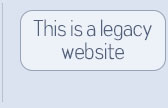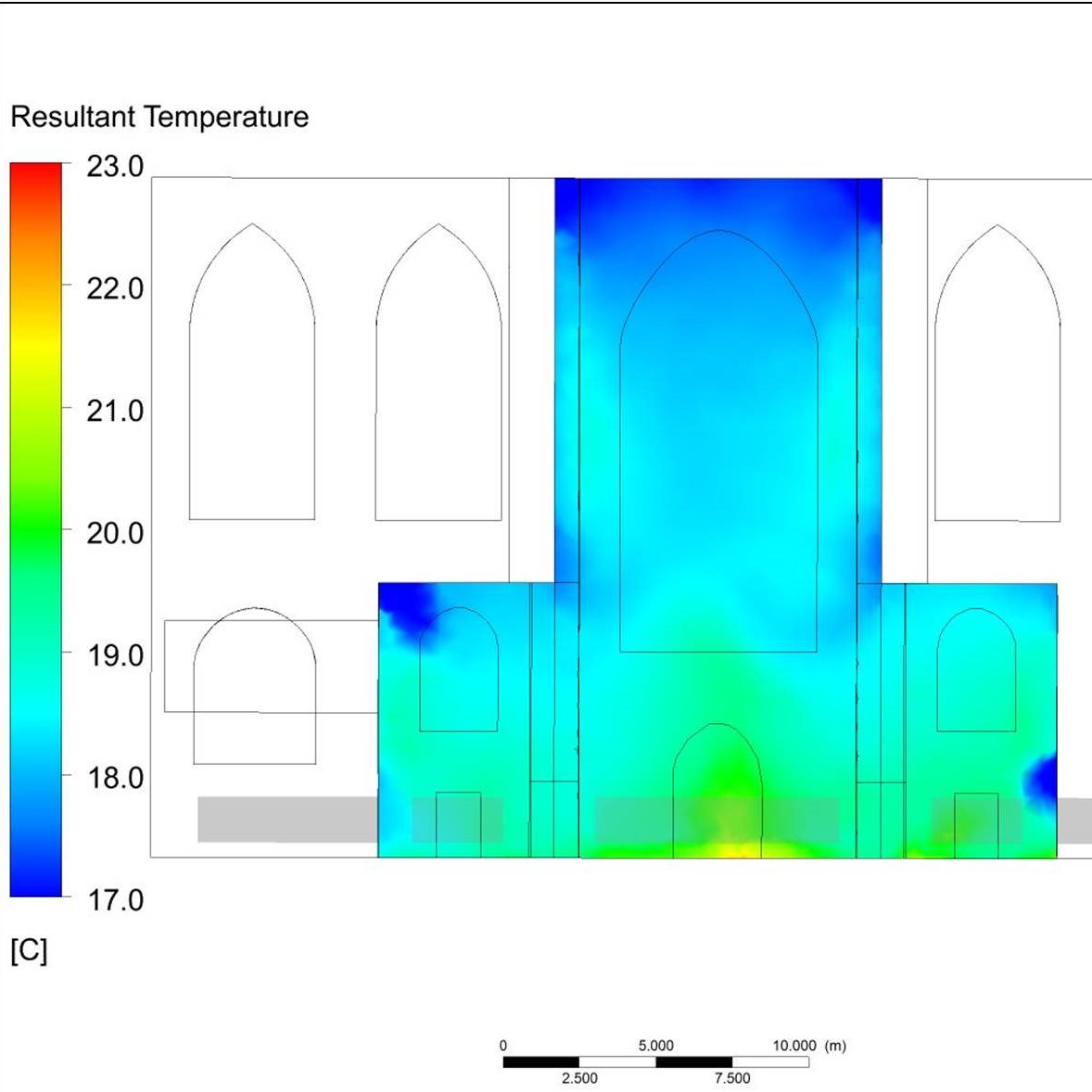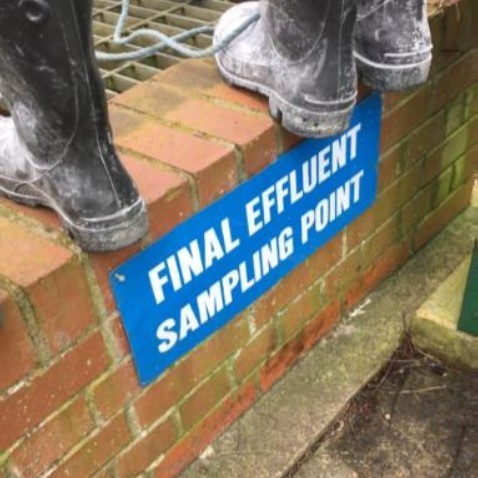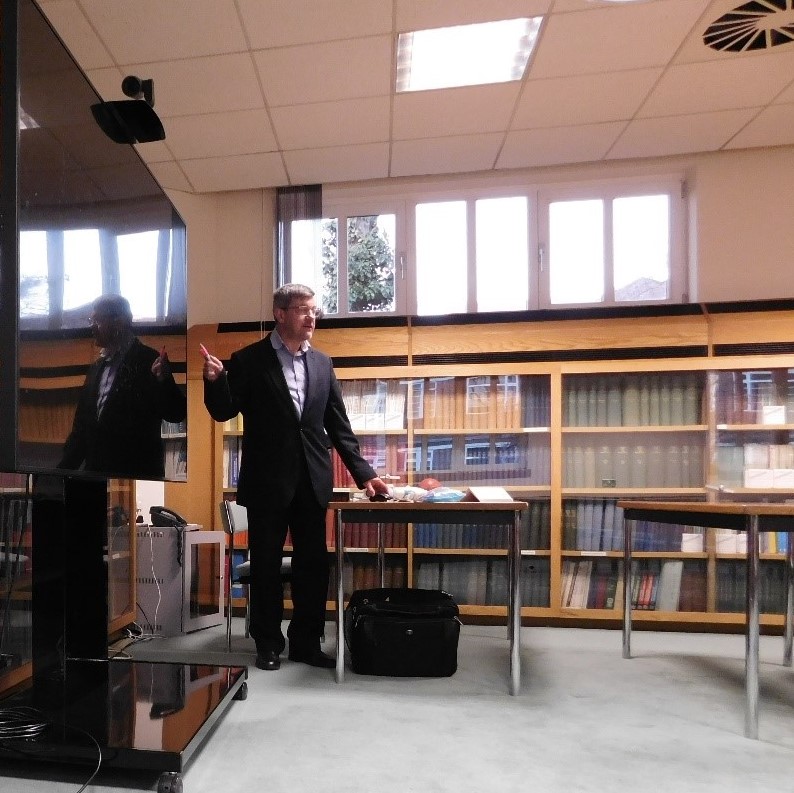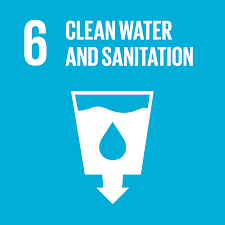
WATEF Network Newsletter: April 2019
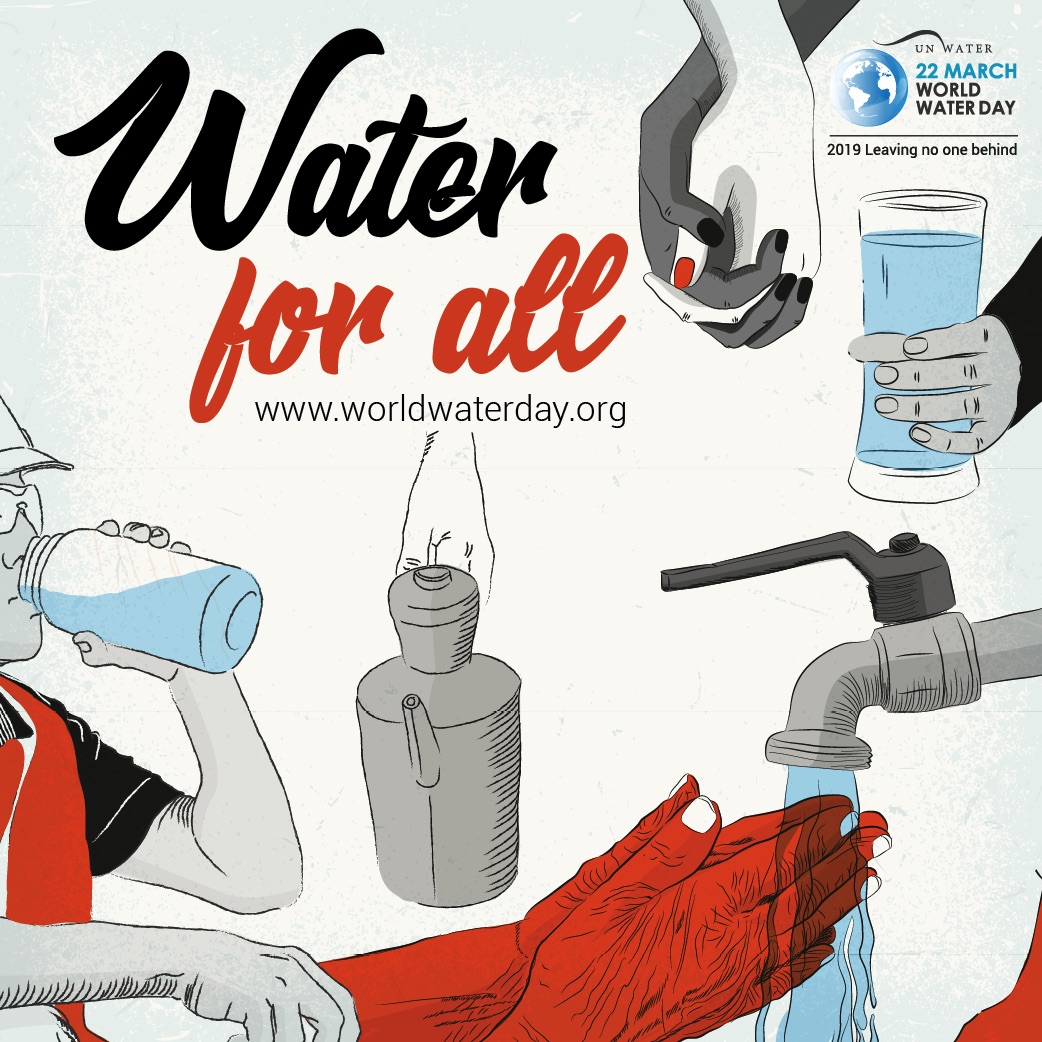 |
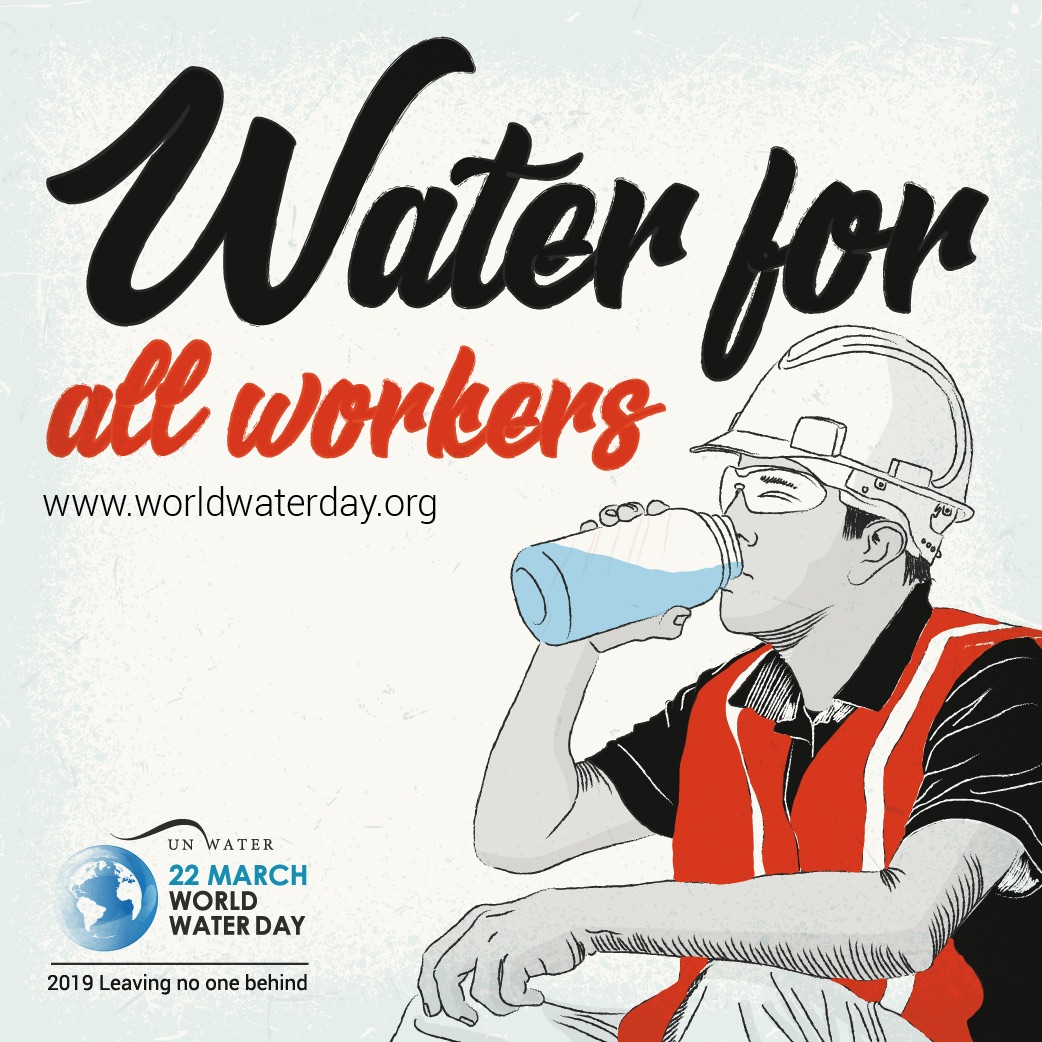 |
|
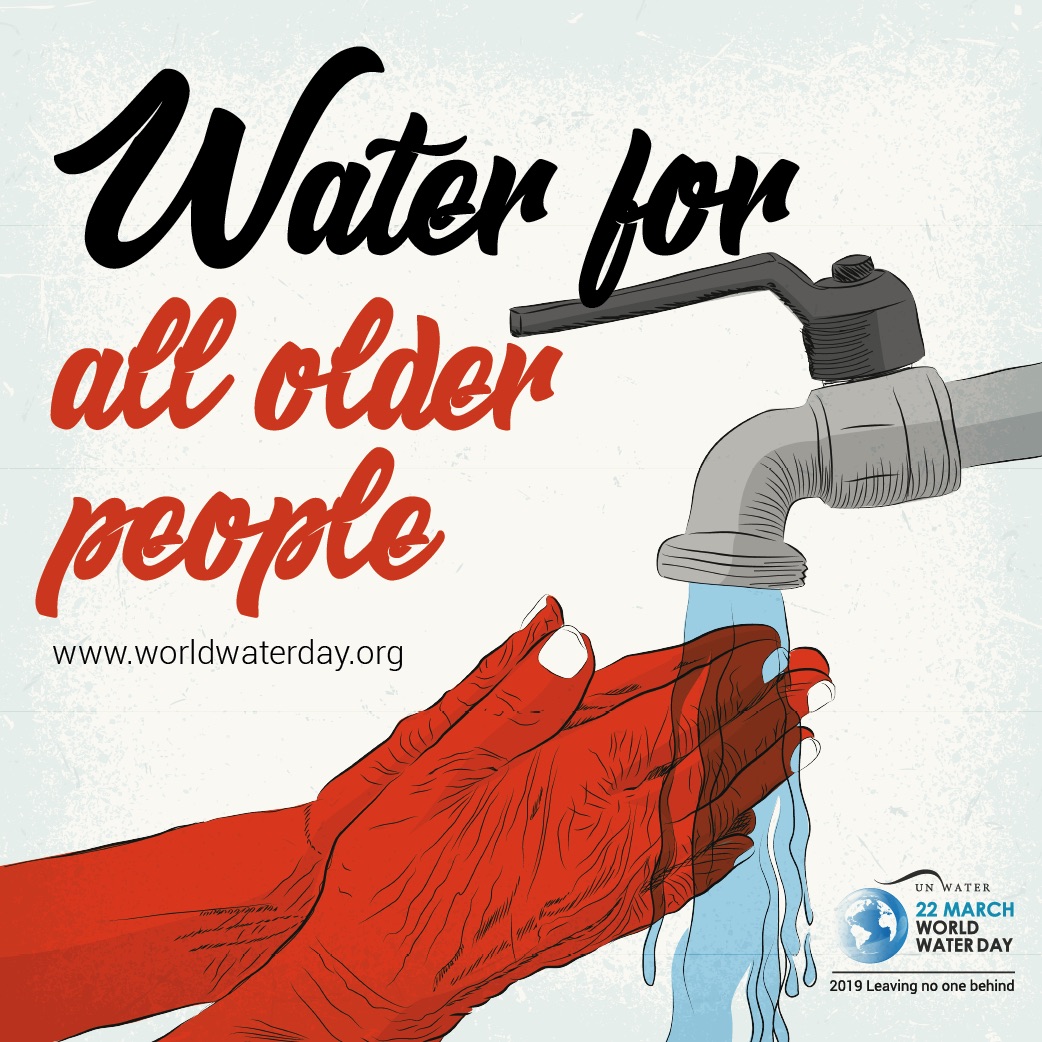 |
World Water Day 22 March 2019: Leaving no one behind
Whoever you are, wherever you are, water is your human right.
The theme for this year's World Water Day 2019 is ‘Leaving no one behind’. This is an adaptation of the central promise of the 2030 Agenda for Sustainable Development: as sustainable development progresses, everyone must benefit.
How does it relate to water?
Sustainable Development Goal 6 (SDG 6) includes a target to ensure availability and sustainable management of water for all by 2030. By definition, this means leaving no one behind.
What is the problem?
Today, billions of people are still living without safe water – their households, schools, workplaces, farms and factories struggling to survive and thrive.
Marginalized groups – women, children, refugees, indigenous peoples, disabled people and many others – are often overlooked, and sometimes face discrimination, as they try to access and manage the safe water they need.
Find out more at the world water day website
The United Nations World Water Development Report, Leaving no one behind, launched 19 March 2019 during the 40th session of the United Nations Human Rights Council (UNHRC), and in conjunction to the World Water Day, demonstrates how improvements in water resources management and access to water supply and sanitation services are essential to addressing various social and economic inequities, such that ‘no one is left behind’ when it comes to enjoying the multiple benefits and opportunities that water provides.
Waterwise conference 2019
Speech by Sir James Bevan, Chief Executive of the Environment Agency at the Waterwise Conference, 19 March 2019
Hats off to Waterwise and Sir James Bevan for bringing water efficiency to the top of the headlines with this ringing challenge on what needs to be done urgently to kerb our consumption and prevent water scarcity in the UK in the future.
Update from REDAWN
Pilot plant testing potential for energy recovery in irrigation networks begins operation
Our first demonstration pilot plant will begin running this Spring, testing our REDAWN micro-hydropower technology by replacing an existing diesel generator.
The pilot is located in the Guadalquivir river basin in Andalucia, Spain. Known as the “European Californiaâ€, the area is noted for its fertile soils and the perfect climate for the production of nuts and pecans.
The technology has been developed by Tecnoturbines, with our partners FAEN, FERAGUA and University of Cordoba.
This is one of three demonstration pilot sites testing the technology for the project; the others are a paper production site in Portugal and a drinking water site in France. More information will be released on these as the sites come online.
For more information on REDAWN visit www.redawn.eu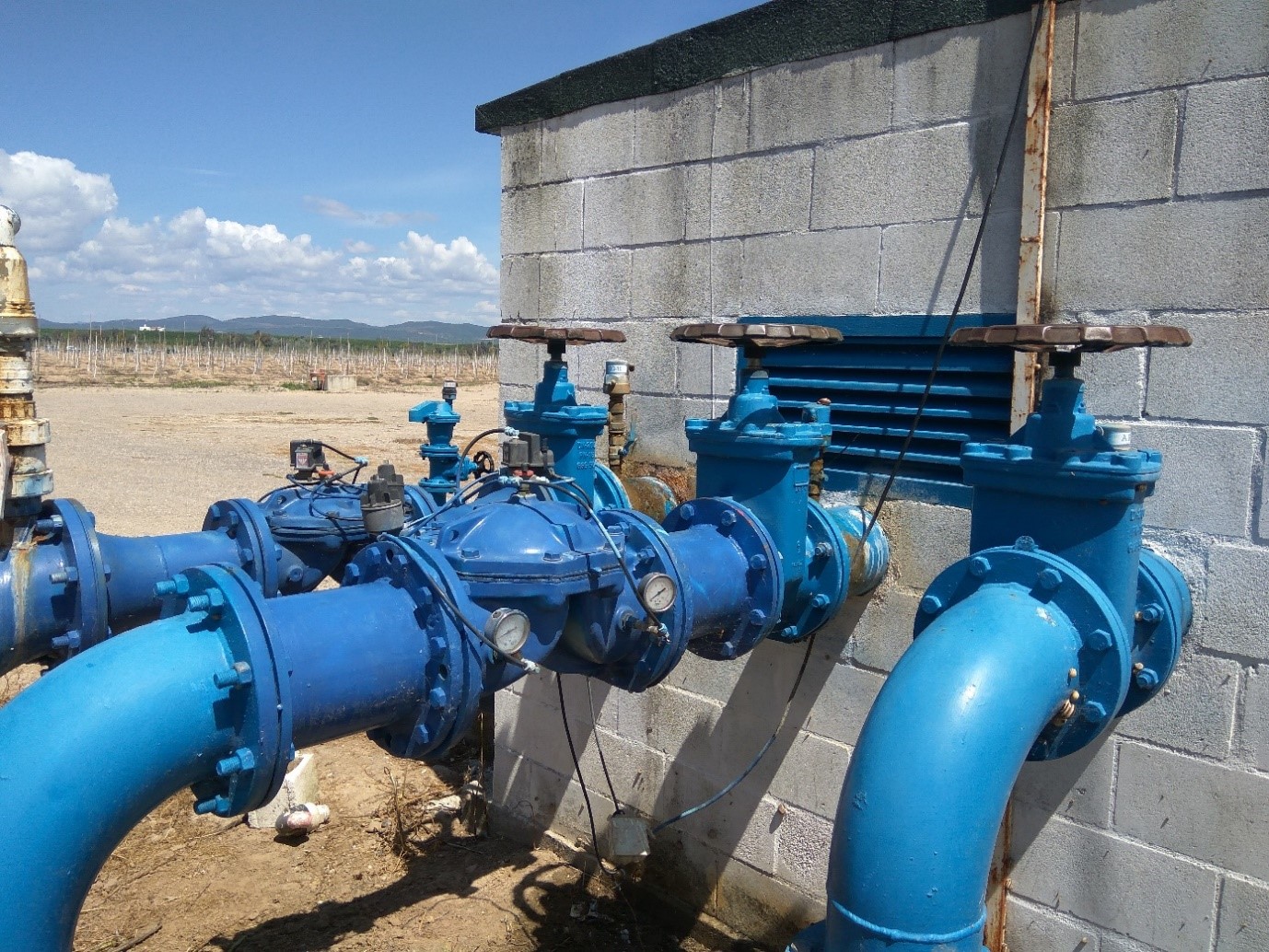
From the blog
January: Bath Abbey: A New Sustainable Heating System
Over one million litres of natural hot spring water at up to 45°C rises in the centre of Bath every day, flowing through the Roman Baths and the Great Drain to discharge into the River Avon. Neil Francis of BuroHappold details the scheme at Bath Abbey to recover energy from the water in the Great Drain for heating as part of the much broader £20m Footprint Project currently underway on site.February: Micropollutants and Wastewater Treatment
Of all the weird and wonderful things that find their way into our sewers, micropollutants are some of the most difficult to remove. Dr Jannis Wenk (University of Bath) explores what effects these pollutants have on our environment, and what technologies can be employed to remove these before they reach the food chainMarch: Water efficient hot and cold water system design: the problems and possible solutions
Out of date regulations, design assumptions and practices result in oversized, inefficient water systems that can also be health risks. John Griggs of Water&More explores solutions to improve the design process and defeat the silo mentality which has often existed in the regulatory world.April: Equitable water access: leaving no one behind, wherever.
UN-Water’s goal of “Leaving no one behind†needs all of us: academics, policy makers, practitioners and NGOs to work together to ensure we achieve water access for the few, as well as the many. WATEF network lead Dr Kemi Adeyeye sets out the challenge of achieving equity in access to safe water for rural communities.
Invitation for submissions to special issue of Water
Water are inviting manuscript submissions for a special issue on "Resilient Water-Wise Cities: Social, Environmental and Technical Contributions of Rainwater Harvesting Systems and Water-Reuse Techniques".
This Special Issue aims to consider a range of perspectives on and approaches to transformation for resilient and water-wise cities. Included papers should present recent advances, which can be social, environmental or technical in character, in relation to rainwater harvesting systems and water-reuse techniques with the aim of enhancing resilience and becoming more water-wise. Broad principles for the following objectives are also welcome: resilience to hydrological extremes (drought and flood); water quality impact; source runoff control; water resources protection; embedding socio-cultural values; facilitating changing social practices.
Guest editors include Assoc. Prof. Ilaria Gnecco and Assoc. Prof Sarah Ward.
Deadline for manuscript submissions: 31 March 2020
More information about this special issue here
Water Saving Week 2019
29 April - 3 May 2019 Online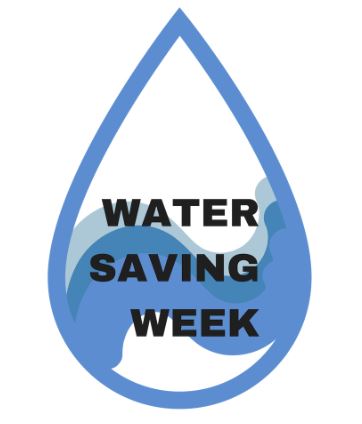
For the fifth time running, Waterwise is hosting its annual Water Saving Week. On every day of this online event, they will focus on a specific area of water use and raise awareness to the issues around it. Through sharing ideas, solutions and related challenges the aim is to help participants save water and maintain its efficient use in their daily lives.
Find out more at the Waterwise website or follow the event on Twitter using hashtag #watersavingweek
Events from WIRC at the University of Bath
8 May 2019: 'Role of nanomaterials in waste water purification' by Professor Vinod Kumar Gupta from the University of Johannesburg29 May 2019: 'Improved capacitive deionization by using novel carbon materials' by Professor Dengsong Zhang from Shanghai University
Please read our April blog and use #WATEFBLOG when sending your Tweets - thank you!
We would love to hear your watery tales so if you wish to become a WATEF blogger please let us know
Lastly please don't forget to follow us on Twitter @WatefNetwork or join REDAWN on Twitter @RedawnAA.
Mrs Eleanor Eaton (Network Coordinator)
Dr Kemi Adeyeye (Lead - WATEF Network)

